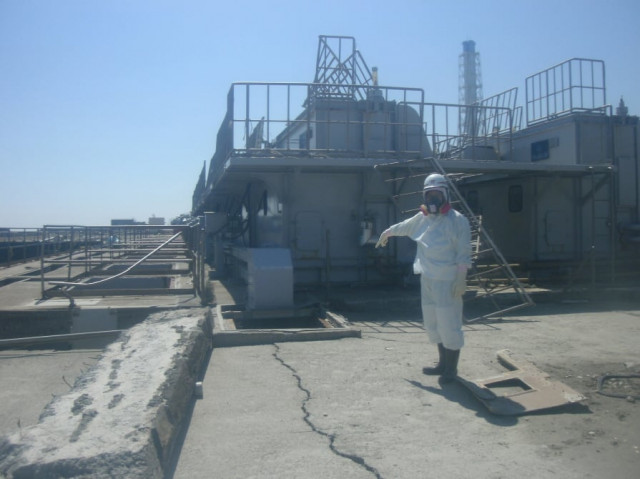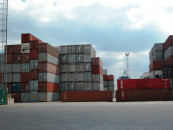Reactor safety concerns : Protests mount against Indian nuclear plant
Fukushima sets of doubts about the risks of nuclear power rise again.

In the busy Indian fishing village of Sakhri Nate, it’s obvious what the locals think of the plan to build the world’s biggest nuclear power plant just across the creek.
“Say No To Nuclear Power. We Don’t Want To Get Sick,” reads one slogan in Hindi on the side of a tarpaulin-covered shack selling sweet tea and sugary snacks.
Chalked on a wall around the corner is a message for the French company that has signed a $9.3-billion deal to supply the plant’s first state-of-the-art pressurised water reactors.
“Areva Go Back,” it says simply in English.
Opposition to the Jaitapur Nuclear Power Project runs deep in this part of the Konkan region of western India, whose people have earned a living from fishing and farming for generations.
As with many in the hard-to-reach coastal area 400 kilometres from Mumbai, 45-year-old fisherman Abdul Majid Goalkar’s argument is well-rehearsed.
At least 5,000 people work on about 600 boats, bringing in 50 tons of fresh fish, prawns and squid every day, he says. If the plant is built, he warns, all those jobs are under threat.
Others want to protect the village’s most famous export - the creamy, Alphonso variety of mango - grown on rocky, clifftop land earmarked for the 2,318-acre plant.
Over the last four years, the grassroots campaign against Jaitapur has built up a steady momentum and become increasingly vocal.
But resistance has hardened since the Japanese earthquake and tsunami that crippled the Fukushima plant, forcing a rethink on nuclear safety around the world and calls in India for a halt to atomic expansion.
Pravin Gaonkar, a fisherman and mango farmer spearheading the anti-nuclear campaign, said the Japanese nuclear crisis was all the more relevant, as the Konkan coast is prone to regular seismic activity.
Another development is that the so-far largely peaceful anti-nuclear campaign has turned violent.
On Monday, the police opened fire on a crowd of protesters, killing one and injuring several others.
The victim, Tavrez Sejkar, was buried in the red earth of the steep hillside cemetery in mainly Muslim Sakhri Nate on Wednesday.
Comparisons have been drawn with Singur in West Bengal state, where Tata Motors abandoned its plans for a new factory to build its Nano car after violent protests from farmers backed by local political parties.
Fast-growing, energy-hungry India, which wants to increase the share of nuclear in its energy mix from three percent to 13 per cent by 2030, could pay a high price if Areva followed Tata’s example.
At full capacity, the six-reactor Jaitapur plant would provide 9,900 megawatts of electricity - more than double the current energy deficit in all of Maharashtra, home to commercial capital Mumbai.
Supporters say it could provide power to a chunk of the 500 million homes across the country that are currently off the grid and is vital to India’s economic progress.
India’s environment minister Jairam Ramesh has angered opponents by insisting that the project will go ahead, even as he conceded that additional safety measures may be required because of Fukushima.
“India cannot afford to abandon the route of nuclear power,” he said on April 18. “From a greenhouse gas point of view, nuclear power is the best option.”
Professor Surendra Jondhale, head of political science at the University of Mumbai, doesn’t think the project will be be abandoned, although a delay is likely while the government reviews safety.
“We are now seeing the real issue being very much politicised. It’s overshadowed the real, genuine protests.”
Back in Jaitapur, where a giant poster of Shiv Sena leader Bal Thackeray and local leaders has been put up on the main street, locals Mahesh Karankar and Chetan Narkar say the impact of the violence has already been felt.
Police have locked down the area, fearful of further unrest. As a result, three days’ worth of fish is rotting in warehouses.
“Whether the Shiv Sena is with us or against us we don’t care,” said 23-year-old Narkar. “We don’t need anyone to help us carry on our protest.”
Another demonstration is planned for Sunday. Pravin Gaonkar says there will be no let up after that.
“If the government does nothing, at least 5,000 fishermen and farmers will go to Delhi and protest,” he added.
Published in The Express Tribune, April 25th, 2011.



















COMMENTS
Comments are moderated and generally will be posted if they are on-topic and not abusive.
For more information, please see our Comments FAQ